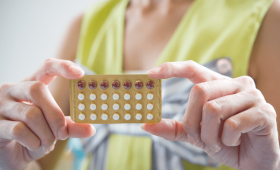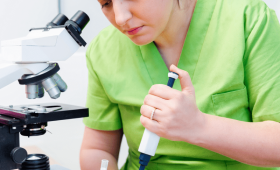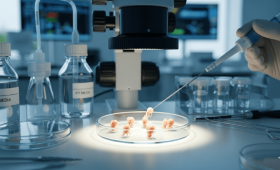This report provides a detailed analysis of popular international treatment destinations for individuals and couples considering building a family through egg donation, starting with the current legal situation in Turkey. The concept of the “best country” is a subjective decision that varies according to personal priorities (cost, success, legal flexibility). This report aims to help the reader determine their own path by revealing the advantages and disadvantages offered by each country.
Analysis shows that, while egg donation is legally prohibited in Turkey , the legal status of children born via this method abroad is secured under the Turkish Civil Code. The child is legally recognized by the birth mother and the husband within the marital union, which signifies a regulation based on the bond of birth and marriage, not genetic ties.
The main destinations and findings examined in the report are:
- Northern Cyprus: A relatively affordable and logistically most accessible option for Turkish citizens. Clinics claim high success rates (over 80% pregnancy rate) , but it is important to note that these data are not included in independent national registries. Prices commonly range between €5,500 and €6,000 for the basic package.
- Greece: Stands out for having the highest female age limit in Europe (54) and strict anonymity laws. Costs are in a similar range to Cyprus (€7,500-€9,000). The lack of a waiting period at some clinics is a significant advantage for those who want to speed up the process.
- Czech Republic: One of the most affordable countries in Europe for egg donation (€8,200-€11,000). However, legal restrictions (only applicable to heterosexual couples) and the low success rates for frozen embryo transfers at some clinics should be considered.
- Spain: Known for its large and diverse donor pool, high medical standards, and successful results. While it is one of the most expensive donation destinations in Europe (€9,900-€12,500) , the increased chance of success and donor diversity may balance out this cost.
- United States (USA): The highest-cost option for egg donation ($20,000-$50,000), but offers the most comprehensive and highest standards. It provides a wide range of donors, but waiting periods and additional legal fees are high.
This report aims to lay the groundwork for a personalized decision-making process by explaining how critical factors such as costs, success rates, legal regulations, and the donor pool interact with each other.
An Overview of the International Egg Donation Journey
Egg donation is a promising assisted reproductive technology for individuals and couples who have a low or no chance of conceiving with their own eggs. This process is based on the principle of a healthy, young woman donating her eggs, which are then fertilized with the recipient’s partner’s sperm in a laboratory environment. The resulting embryos are transferred to the recipient’s uterus. Due to legal restrictions in Turkey, this treatment method can only be applied abroad. This situation necessitates an international search and a comprehensive examination of the options offered by foreign clinics.
The purpose of this report is not limited to simply revealing which country is cheaper or more expensive. The main goal is to provide a multidimensional assessment for potential parents, showing how the definition of the “best country” changes according to personal needs, financial status, ethical approach, and legal concerns. In this context, with a special focus on Northern Cyprus, the most preferred international destinations for egg donation will be compared in detail in terms of critical factors such as costs, success rates, legal regulations, and the donor pool. The report aims to provide readers with the necessary information to make an informed and reliable decision.
Legal Framework and the Turkish Context
Legal Status of Egg Donation in Turkey
Regulations in the field of assisted reproductive technologies (ART) in Turkey explicitly prohibit egg donation. The Turkish Penal Code (5237) and relevant regulations of the Ministry of Health do not permit the use of a third person’s (donor’s) genetic material (sperm or egg). This legal prohibition means that services such as egg donation or surrogacy cannot be offered at any IVF center in Turkey. Therefore, the only option for couples or individuals who want to use this treatment method is to seek treatment at clinics abroad.
In addition to legal restrictions, it is a legal requirement for patients seeking IVF treatment in Turkey to be married and to present their marriage certificate at the time of application. This requirement is another reason why individuals, especially single women, who are seeking egg donation, turn to the more flexible approaches of international clinics.
Legal Consequences of Treatment Abroad in Turkey
One of the biggest concerns for Turkish citizens considering having a child through egg donation abroad is the effect of this procedure on their legal status in Turkey. The most important legal assessment on this subject is found in the regulation of parentage (lineage) in the Turkish Civil Code (TMK). In Turkey, lineage is established on birth and the marital union, rather than on genetic ties. This fundamental principle clearly determines the legal consequences of egg donation procedures performed abroad in Turkey.
- Motherhood and Fatherhood: According to the TMK, the mother of a child is the woman who gives birth to that child. This definition disregards the question of who the genetic source of the egg is. Similarly, if a child is born within a marital union, the husband is considered the legal father. Therefore, the donor’s genetic contribution does not constitute a legal lineage, and the donor has no parental rights or obligations over the child.
- Custody and Divorce Cases: The custody process for children born via donation is not subject to a different procedure than that for other children. In divorce cases, custody is determined according to the principle of “the best interest of the child,” as per Article 336 of the Turkish Civil Code. The decisions of the Court of Appeals have clarified that the genetic connection of the child is not a determining factor in custody decisions; the court evaluates who can best provide for the child’s physical, emotional, and social development.
- State’s Right to Intervene: Some couples are concerned that the state may intervene or take the child if they have a child through donation. However, Turkish law is structured to alleviate this concern. The state has the authority to take protective measures only in situations that directly harm the best interest of the child, such as violence, neglect, or abuse. The donation method itself is not considered a reason for state intervention.
This legal analysis eliminates the most basic legal concern of Turkish citizens seeking treatment abroad.

Criteria for Determining the “Best Country”
The definition of the “best country” is the result of a complex equation that varies from person to person. The factors that influence this decision are not limited to just cost and success rates; elements such as legal restrictions, the quality of the donor pool, and waiting times are equally important.
1. Success Rates: The Difference Between Pregnancy and Live Birth
When evaluating a clinic’s success rates, it is not enough to just look at the advertised percentage figures. It is critical to understand how the rates are calculated and the important difference between “pregnancy” and “live birth”. Clinics often emphasize the higher pregnancy rates (positive pregnancy test or clinical pregnancy at 12 weeks). However, the ultimate goal of egg donation treatment is a healthy live birth.
- Interpreting Data: Data from the CDC (Centers for Disease Control and Prevention) in the USA shows that the live birth rate for treatments with fresh donor eggs is 53.9%, while this rate can reach up to 65.9% for clinical pregnancy. The difference includes miscarriages that occur after the transfer. In general, the probability of miscarriage within the first 12 weeks after egg donation IVF is between 20-30%. This shows that the live birth rate will always be lower than the clinical pregnancy rate.
- Cumulative Success Rates: A failed cycle does not mean the entire process will be a failure. Some clinics report cumulative success rates of up to 90% after three cycles. This highlights the importance of potential parents being prepared for multiple attempts.
2. Cost Analysis: Understanding Hidden Fees
The cost of egg donation treatment varies greatly from country to country and from clinic to clinic. However, one of the most important points of evaluation is the “extra” or “hidden” costs beyond the basic treatment package.
- Components of the Price: The main items that make up the cost of egg donation are: the basic treatment fee (including donor and medical procedure costs), hormone stimulation medications (usually €1,000-€1,500 ), genetic testing, legal fees, and travel and accommodation expenses.
- Reasons for Price Differences: One of the main reasons for the fundamental price differences between countries is the amount of compensation paid to donors. For example, donors in the USA receive a fee of between $5,000-$10,000 per cycle, while in Cyprus and Spain, this amount is much lower ($1,000-$3,000). Similarly, high legal regulations and attorney fees also increase the costs in the USA.
- Package Options: Some clinics may offer discounted packages that cover multiple cycles or refund programs under certain conditions. Such options should be evaluated to reduce cost risk and better plan the total budget.
3. Legal Regulations and Restrictions
Each country has its own legal framework regarding egg donation. These regulations determine the rights of the donor and recipient, anonymity in the process, and the criteria for accessing treatment.
- Donor Anonymity: In some countries like Cyprus, there is a strict anonymity requirement between the donor and the recipient couple; the donor’s identity is never disclosed to the recipient. Similar anonymity rules apply in Spain, while the USA has fewer restrictions, and options for open donors (known identity) are also available.
- Marital Status and Age Limits: Eligibility for treatment varies from country to country. The Czech Republic only allows heterosexual couples to receive egg donation treatment , while in Cyprus, an official marriage is not required , and in Cyprus, single women or female couples can also receive treatment. The upper age limit for women is also an important factor: it is 55 in Cyprus, 54 in Cyprus, and 50 in Spain.
4. Donor Pool and Waiting Times
The size and diversity of the donor pool increase the probability of finding a donor with desired physical characteristics. Spain is known for the high availability of donors from different ethnic backgrounds, which provides an advantage for couples who are sensitive about matching physical features. Waiting times can also directly affect the logistical and emotional burden of the treatment process. Waiting lists can be long in some countries like the USA , but some clinics in Cyprus operate with a zero waiting time policy. This can significantly speed up the process for couples in a hurry.
These key criteria guide potential parents in determining which country is most suitable for their specific situation.
Table 1: Comparative Overview of Popular Countries for Egg Donation
| Country | Average Cost Range (€) | Live Birth Rate (%)* | Legal Framework (Anonymity) | Female Age Limit | Average Waiting Time | Donor Pool & Diversity |
| Northern Cyprus | €5,500-€6,000 | No data | Anonymous | 55 | Generally none | Limited, matched by ethnic profile |
| Greece | €5,500-€6,000 | 54.7% (fresh) | Strict Anonymity | 54 | Zero waiting time | Large and diverse, anonymous |
| Czech Republic | €4,200-€5,000 | 42.2% (fresh) | Anonymous | 48 + 12 months | Can be long | Limited |
| Turkey | €2,900-€6,500 | 54.7% (fresh) | Anonymous | 55 | Generally none | Very large and diverse |
| USA | €25,000-€45,000 | 53.9% (fresh) | Flexible (Anonymous/Open) | Varies by clinic | Variable (2-4 months) | Large and comprehensive |
*Note: Success rates indicate the live birth or pregnancy rate per fresh egg transfer and may differ between clinics and independent organization data. Independent data is not available for Northern Cyprus.
Detailed Comparative Analysis by Country
3.1 Northern Cyprus: Accessibility and High Claims
Northern Cyprus stands out as a popular destination for Turkish citizens due to its visa-free travel, cultural proximity, and relatively affordable costs. The fact that an official marriage is not required for egg donation treatment on the island and there is a flexible upper age limit of 55 for women offers a flexibility that overcomes the strict restrictions in other countries.
- Treatment Costs: Egg donation costs in Cyprus are offered in a wide range. While some sources claim the basic treatment starts at a low price like €2,250 , this usually refers to basic IVF packages that do not include egg donation. The cost of packages that include egg donation is generally in the range of €5,500 to €6,000. This price usually includes medical treatment and donor costs, but excludes additional expenses such as flights, accommodation, medications, and extra tests.
- Success Rates: The success rates of clinics in Cyprus are one of the most critical issues to be evaluated. Some clinics claim to achieve a pregnancy rate of over 80% on the first attempt. These figures are not included in the European databases collected and published by independent international organizations (such as ESHRE). This situation requires a better understanding of the difference between pregnancy rates and live birth rates, and careful questioning of the clinics’ data. In particular, these high rates may have been calculated based on patient groups that achieved the best results or may refer to the pregnancy rate instead of the live birth rate.
- Donor Profile: Donors at clinics in Cyprus are young (aged 18-35), physically and mentally healthy , and undergo strict screenings. Care is taken to match physical features such as height, weight, eye color, and skin color to the recipient.

3.2 Greece: High Age Limit and Strong Legal Framework
Greece has a worldwide reputation in the field of egg donation. The country is known for combining medical excellence with affordable costs and progressive laws.
- Cost and Success: Egg donation costs in Greece are in a similar range to Cyprus and generally vary between €5,500 and €6,000. According to ESHRE data, the pregnancy rate with fresh eggs in Greece is 54.7%, while it is 50.1% with frozen eggs.
- Legal Flexibility and Anonymity: The upper age limit for egg donation in Greece was raised to 54 with the 2022 law; this is one of the highest age limits in Europe. The country’s laws require strict anonymity between the donor and recipients. This means that the donor’s identity will never be disclosed. In addition, some clinics in Greece operate with a zero waiting time policy for egg donation. The reason for this is that all donors in the program apply voluntarily and a ready donor pool is available.
3.3 Czech Republic: Low Cost and Legal Restrictions
The Czech Republic is known as one of the most affordable destinations in Europe for couples seeking egg donation.
- Cost and Success: Egg donation costs generally vary between €4,200 and €5,000. However, ESHRE data show that while the pregnancy rate with fresh eggs is 42.2%, this rate is at a lower level of 23.1% with frozen eggs. This supports the general finding that the use of fresh eggs increases the chance of success.
- Legal Restrictions: Legal regulations in the Czech Republic impose significant restrictions on egg donation. The country does not allow single women or female/male couples to receive treatment; this service is only offered to heterosexual married couples. In addition, the upper age limit for women is set at 48 + 12 months.
3.4 Turkey: Large Donor Pool and Experience
Turkey is one of the most popular European destinations for egg donation due to its high medical standards, technologically advanced clinics, and large donor pool.
- Cost and Success: Turkey is one of Europe’s most affordable egg donation centers. Costs typically range from €2,600 to €5,500. Despite this, success rates are quite high; the pregnancy rate for fresh eggs is 54.7% and for frozen eggs, 51.1%.
- Donor Access: One of the most important characteristics that distinguishes Türkiye from other countries is its high access to donors from a wide range of ethnic backgrounds. This increases the chances of recipient couples finding a donor with the physical characteristics they desire.
3.5 United States: High Cost, Comprehensive Process
The USA is one of the highest-cost options for egg donation, but also one of the most comprehensive and with the highest standards.
- Cost: Egg donation costs vary in a very wide range, from $20,000 to $50,000. The main reasons for this high cost include the high compensation paid to donors ($5,000-$10,000), comprehensive medical and legal processes, and the use of advanced technology.
- Success and Process: In the USA, the live birth rate with fresh donor eggs is 53.9%, while this rate is 45.8% with frozen eggs. The process includes extensive counseling, detailed medical screening, and legal contracts. Waiting times can vary from a few months to a year, depending on the clinic and the donor profile selected.
Other Factors Affecting Success and the Treatment Process
4.1 Egg Donor Selection Criteria and Screening
Egg donor selection is a vital stage for the success of the treatment and the health of the child to be born. Donor candidates are subjected to comprehensive medical, genetic, and psychological screenings, not just based on physical features.
- Comprehensive Evaluation:
- Medical Criteria: Donors should generally be between 21-34 years old (18-35 in Cyprus ) and be in good general health. They undergo a series of analyses such as blood tests for infectious diseases (Rw, HBs, HCV, HIV), hormonal evaluation (AMH, FSH, LH), and an ultrasound of the pelvic organs.
- Genetic and Family History: The examination of the donor and her family for genetically transmitted diseases is important to minimize the risk to the child to be born. A baby born via donation has the same risk of birth defects (3-5%) as the general population.
- Psychological Evaluation: Donors’ motivations, mental health, and ability to handle the physical and emotional difficulties of the process are determined by a psychological evaluation. Studies show that egg donors often have optimistic, energetic, and altruistic personality traits.
- Physical Matching: The matching of the donor’s physical features such as eye, hair, and skin color, height, and weight to the recipient is an important selection criterion for some couples. This supports the expectation that the child will better fit into the family environment.
Table 2: Comprehensive Screening Criteria Applied for Egg Donor Candidates
| Criteria Category | Tests/Evaluations Performed | Level of Importance/Reason |
| Medical Evaluation | Age (21-34 years), physical examination, body mass index (19-29), vaginal smear, breast ultrasound | To guarantee that the donor is healthy and has high egg production capacity. |
| Infection Screening | HIV, Hepatitis B/C (HBs, HCV), Syphilis (Rw), TORCH infections (rubella and toxoplasmosis) | To eliminate the risk of infectious diseases for the recipient and the child to be born. |
| Genetic Evaluation | Karyotype analysis, research of family history of genetic diseases, allergy conditions | To minimize the risk of genetically transmitted diseases to the child to be born. |
| Psychological Evaluation | Psychological interview, mental health status | To ensure the donor participates in the process voluntarily and consciously, and is emotionally stable. |
| Physical Feature Matching | Eye color, hair color, skin color, height, weight, ethnic origin | To meet the expectation that the child will physically resemble the recipient family. |
4.2 Effectiveness Comparison of Fresh vs. Frozen Eggs
The use of fresh or frozen donor eggs in the treatment process is an important factor that affects success rates.
- Fresh Eggs: Generally have higher success rates. This is because potential damage that the eggs may be exposed to during the freezing and thawing process is avoided.
- Frozen Eggs: Live birth rates are generally lower than with fresh eggs. However, frozen eggs can make the treatment faster and logistically easier, as they do not require the synchronization of the donor’s and recipient’s menstrual cycles.
4.3 The Role of Clinic and Laboratory Quality
In addition to the country of treatment, the quality of the selected clinic directly affects success. The experience, technology, and protocols of the embryology laboratory where the eggs are fertilized and the embryos develop are among the most important determinants of the final outcome. An experienced laboratory can increase success rates by using advanced techniques such as artificial intelligence and time-lapse in embryo selection.
Decision-Making Guide and Recommendations
The egg donation journey requires comprehensive research and careful planning. This chapter brings all the information together to provide a practical roadmap for those who want to make the most suitable decision for their own situation.
5.1 What to Consider When Choosing a Clinic
Choosing a clinic is one of the most critical steps of the entire process. When communicating with clinics, it is important to ask the following questions:
- Success Rates: The clinic should be asked to clarify whether the success rates they advertise are the “live birth rate” or the “clinical pregnancy rate.” It should be questioned whether this data is reported to independent national or international registry organizations (ESHRE, SART, CDC).
- Cost Details: A written and detailed breakdown should be requested to ensure that the offer includes all cost items (basic fee, medications, additional tests, legal fees, donor compensation). This transparency is vital to prevent hidden costs from emerging.
Table 3: Cost Items of Egg Donation Treatment
| Cost Item | Average Price Range (€) | Notes |
| Basic Treatment Fee | €4,200 – €8,500 (Europe) | Covers donor selection, egg retrieval, fertilization, and embryo transfer. |
| Hormonal Medications | €1,000 – €1,500 | Necessary medications to prepare the recipient’s uterine lining. |
| Genetic Testing | Variable | Extra fees may be charged for additional genetic screenings (such as CGT) deemed necessary. |
| Legal Fees | Variable (high in USA) | Additional costs for legal contracts and documents may arise. |
| Travel and Accommodation | Variable | Includes flight and accommodation expenses in the city where the clinic is located throughout the treatment process. |
5.2 Psychological Preparation and Support for the Process
Egg donation is a journey that involves not only complex medical procedures but also intense emotional fluctuations. Before starting this process, receiving psychological counseling or joining a support group can be beneficial to cope with the difficulties that the process will bring. Open communication and mutual support between partners are essential for the successful completion of the journey.
Creating Your Roadmap
This report reveals that the egg donation journey is a complex medical, legal, and emotional process. It is understood that there is no single definition of the “best country” and that this decision is a personal one that requires carefully weighing factors such as cost, success, legal flexibility, and personal comfort level.
While Northern Cyprus offers great advantages for Turkish citizens in terms of logistics and cost, the fact that clinic success rates are not supported by independent data requires careful questioning. Greece and Spain offer reliable alternatives with high medical standards and more transparent success data, while the Czech Republic stands out as an affordable option. The USA, despite its high cost, offers the most comprehensive services and the largest donor pool.
Determining the most suitable path for potential parents is possible by evaluating the advantages and disadvantages offered by each country according to their personal situation. It should be remembered that egg donation, with the right information and preparation, is a scientific and ethical path that offers the chance to have a miracle baby.



